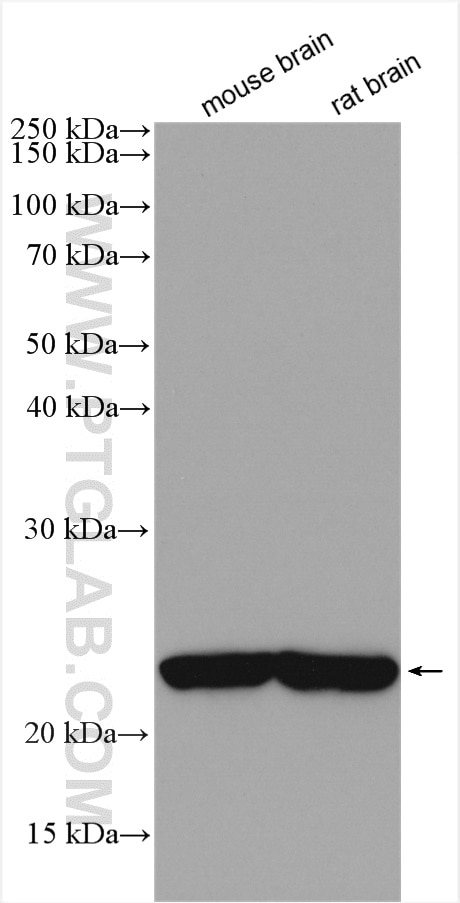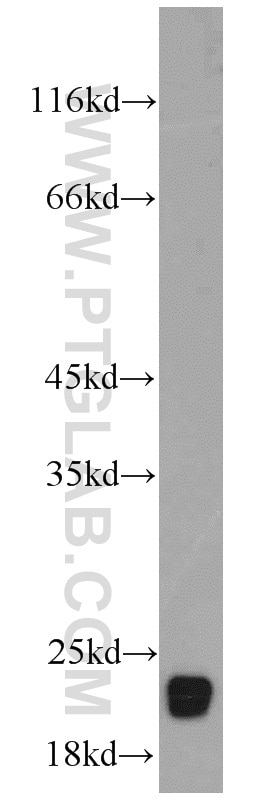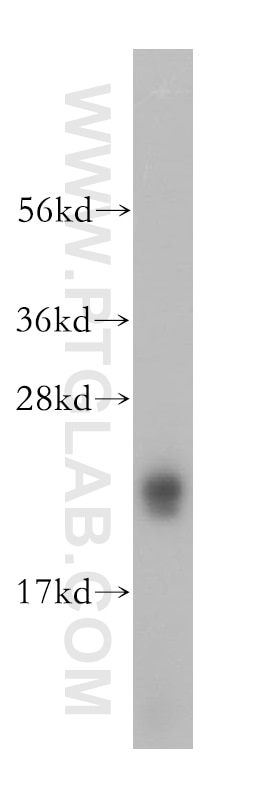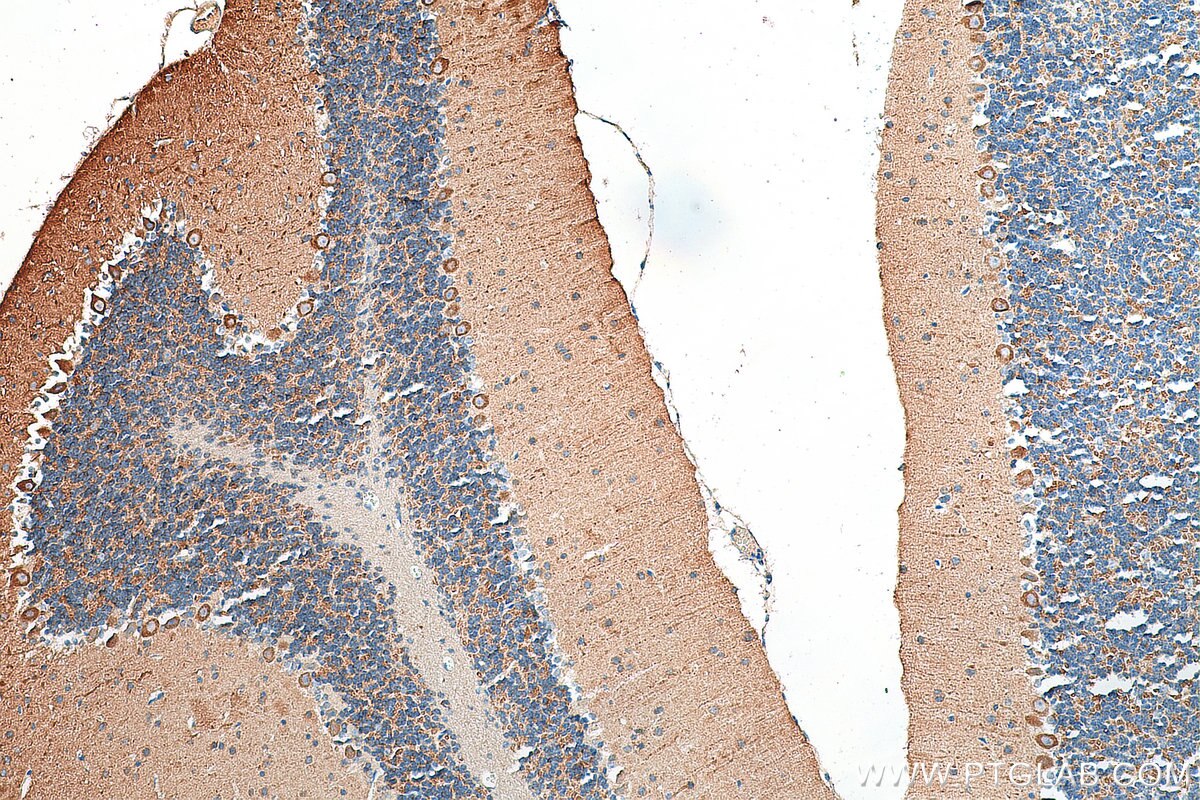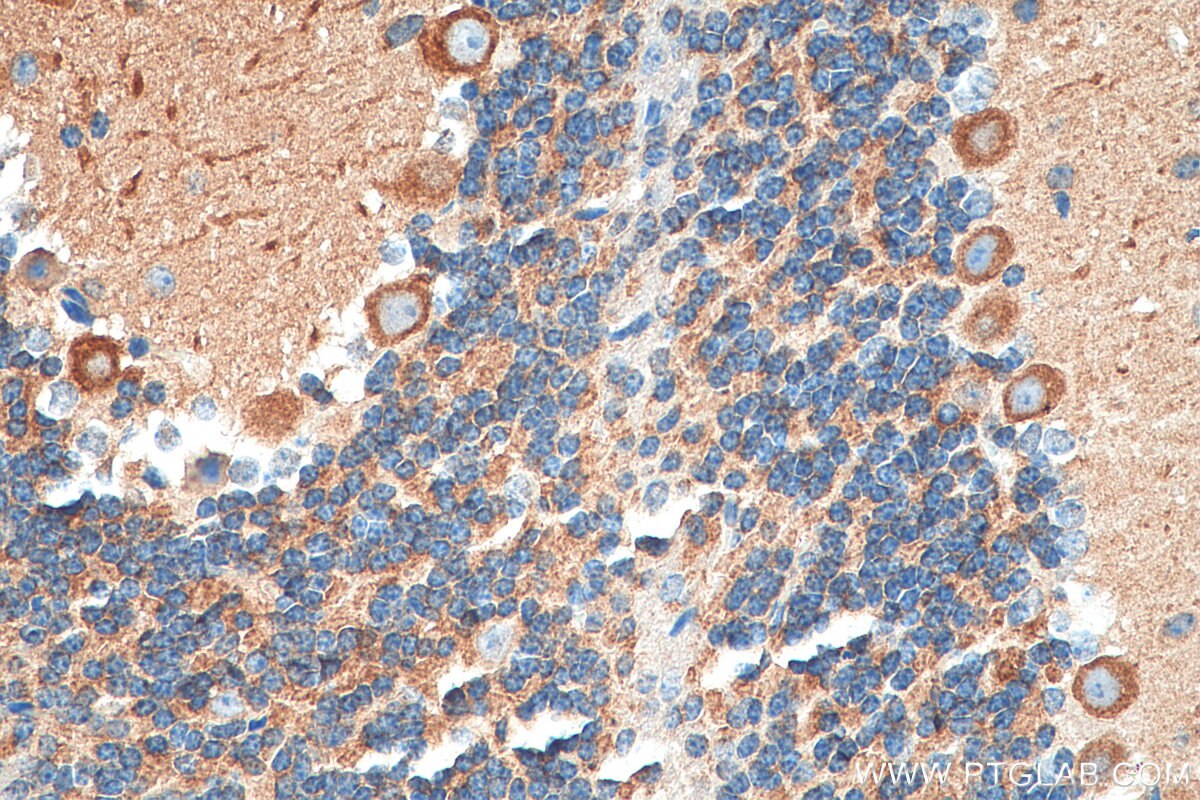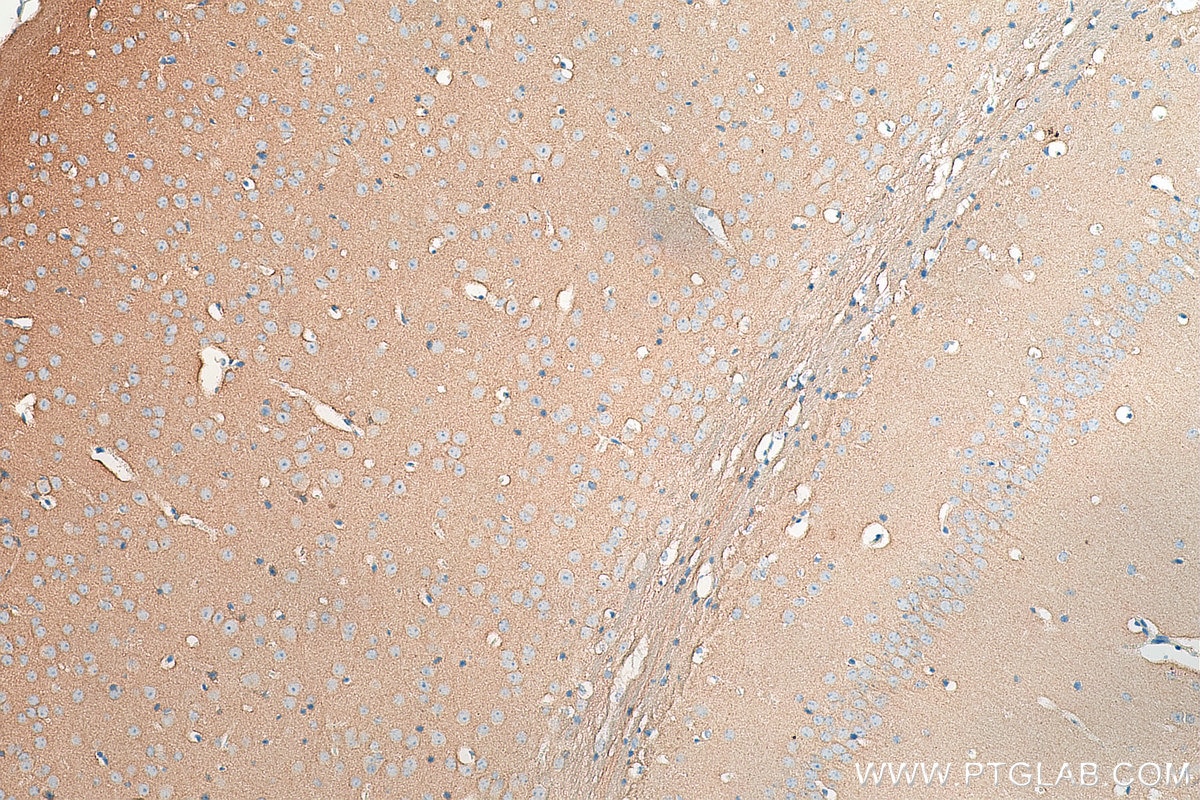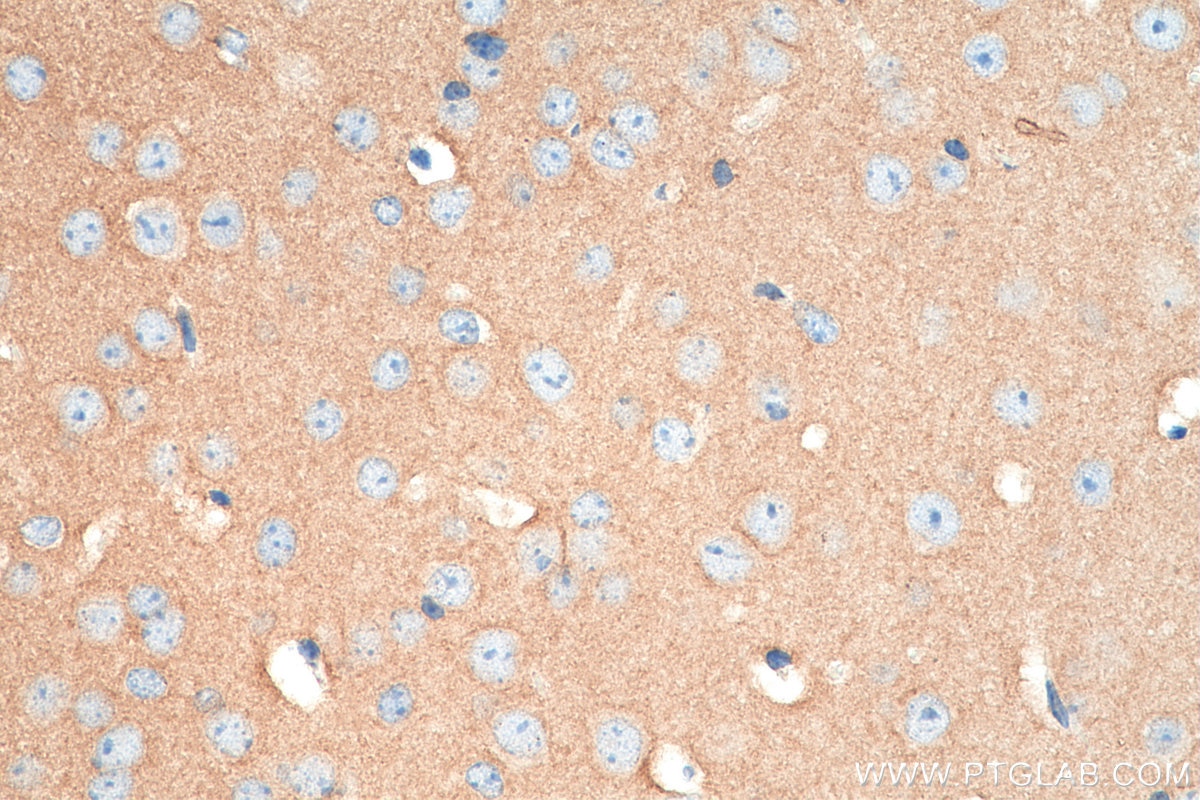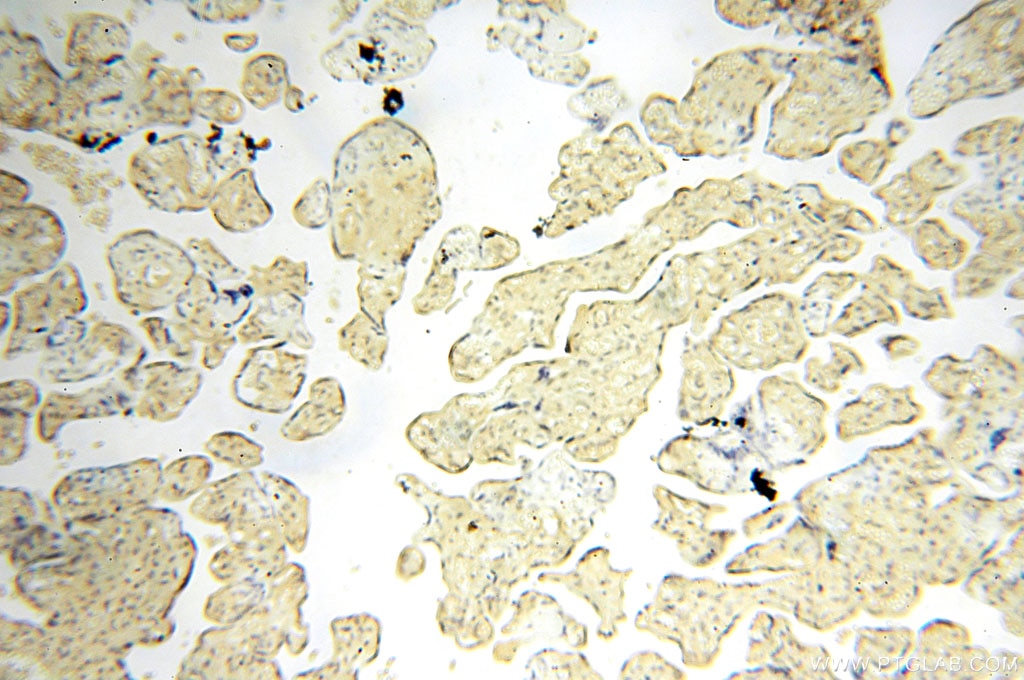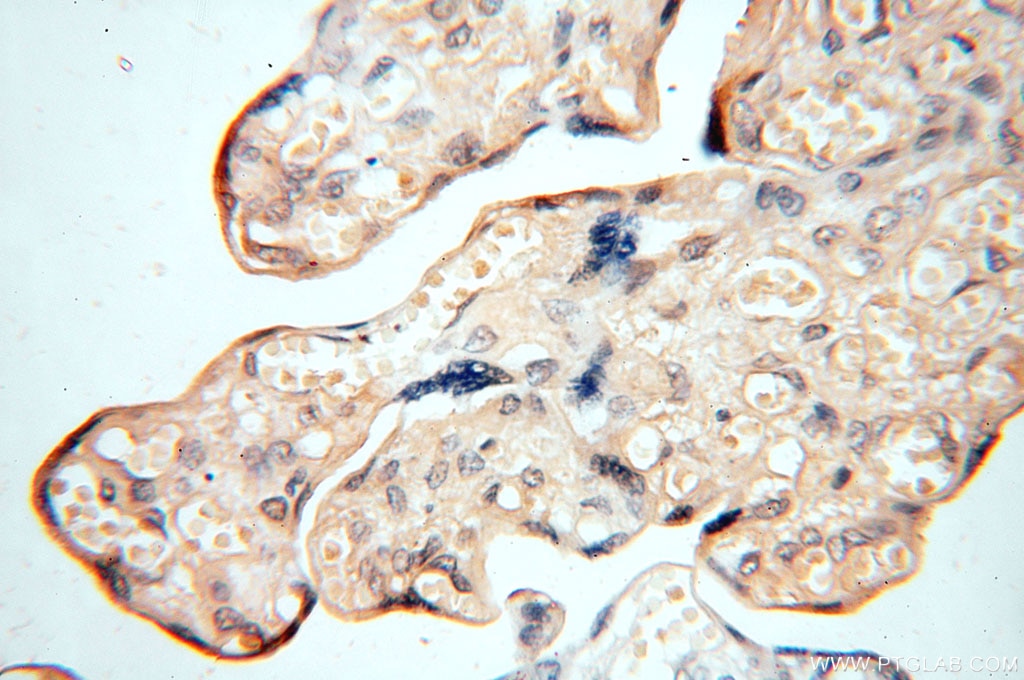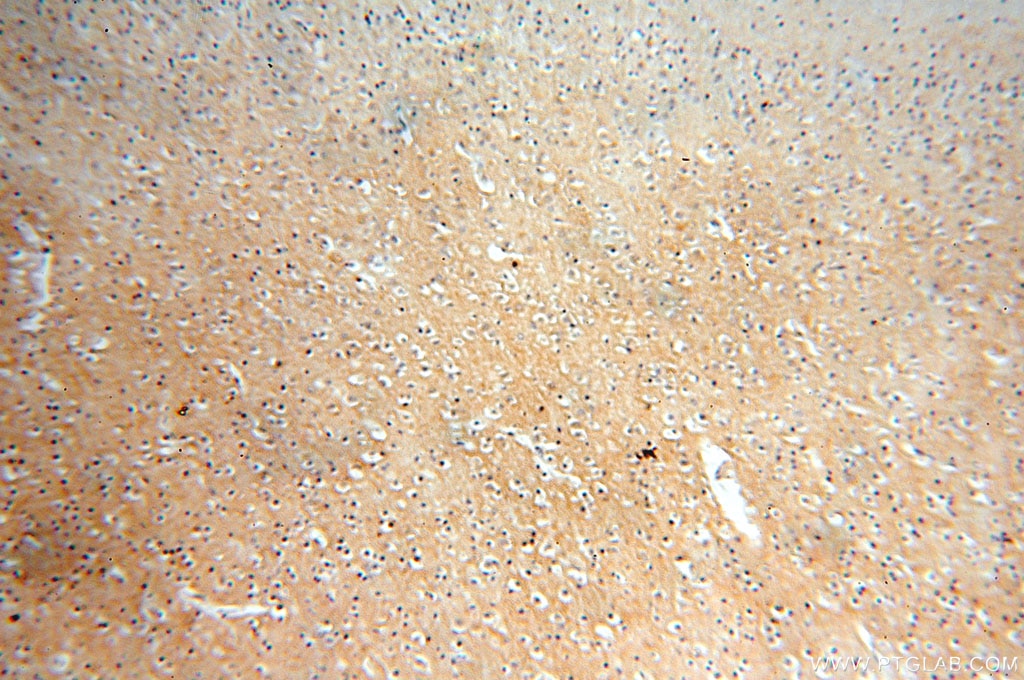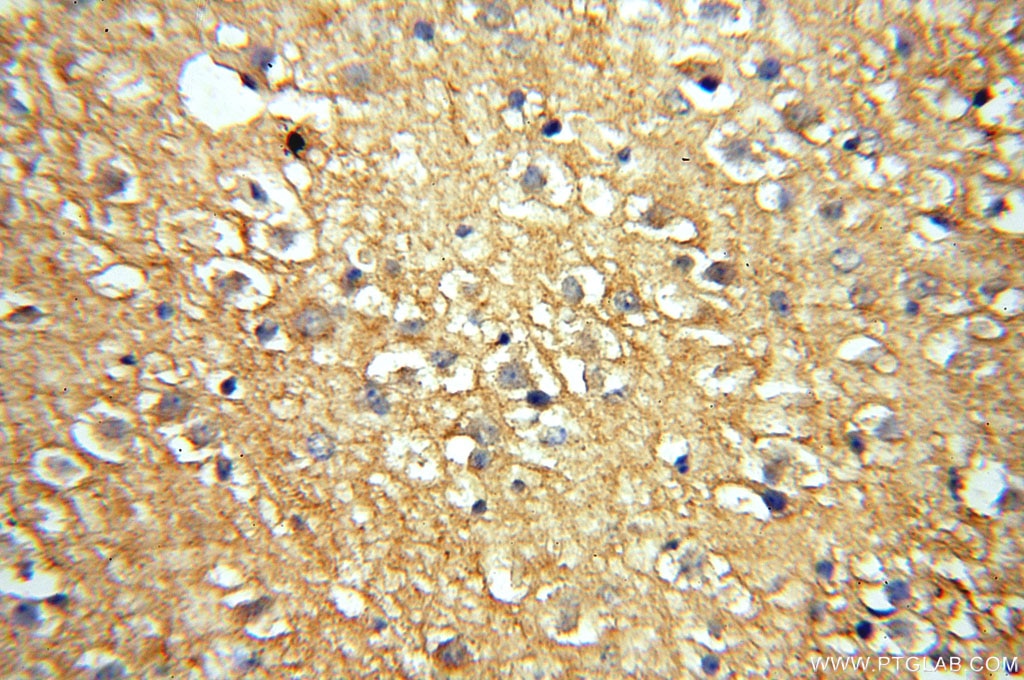- Featured Product
- KD/KO Validated
RTN1 (Isoform RTN1-C) Polyklonaler Antikörper
RTN1 (Isoform RTN1-C) Polyklonal Antikörper für IHC, WB, ELISA
Wirt / Isotyp
Kaninchen / IgG
Getestete Reaktivität
human, Maus, Ratte
Anwendung
WB, IHC, IF, ELISA
Konjugation
Unkonjugiert
Kat-Nr. : 15048-1-AP
Synonyme
Galerie der Validierungsdaten
Geprüfte Anwendungen
| Erfolgreiche Detektion in WB | Maushirngewebe, humanes Hirngewebe, Rattenhirngewebe |
| Erfolgreiche Detektion in IHC | Maus-Cerebellum-Gewebe, humanes Hirngewebe, humanes Plazenta-Gewebe, Maushirngewebe Hinweis: Antigendemaskierung mit TE-Puffer pH 9,0 empfohlen. (*) Wahlweise kann die Antigendemaskierung auch mit Citratpuffer pH 6,0 erfolgen. |
Empfohlene Verdünnung
| Anwendung | Verdünnung |
|---|---|
| Western Blot (WB) | WB : 1:500-1:4000 |
| Immunhistochemie (IHC) | IHC : 1:50-1:500 |
| It is recommended that this reagent should be titrated in each testing system to obtain optimal results. | |
| Sample-dependent, check data in validation data gallery | |
Veröffentlichte Anwendungen
| KD/KO | See 2 publications below |
| WB | See 5 publications below |
| IF | See 1 publications below |
Produktinformation
15048-1-AP bindet in WB, IHC, IF, ELISA RTN1 (Isoform RTN1-C) und zeigt Reaktivität mit human, Maus, Ratten
| Getestete Reaktivität | human, Maus, Ratte |
| In Publikationen genannte Reaktivität | Maus, Ratte |
| Wirt / Isotyp | Kaninchen / IgG |
| Klonalität | Polyklonal |
| Typ | Antikörper |
| Immunogen | RTN1 (Isoform RTN1-C) fusion protein Ag7031 |
| Vollständiger Name | reticulon 1 |
| Berechnetes Molekulargewicht | 84 kDa, 39 kDa, 24 kDa |
| Beobachtetes Molekulargewicht | 23 kDa |
| GenBank-Zugangsnummer | BC000314 |
| Gene symbol | RTN1 |
| Gene ID (NCBI) | 6252 |
| Konjugation | Unkonjugiert |
| Form | Liquid |
| Reinigungsmethode | Antigen-Affinitätsreinigung |
| Lagerungspuffer | PBS mit 0.02% Natriumazid und 50% Glycerin pH 7.3. |
| Lagerungsbedingungen | Bei -20°C lagern. Nach dem Versand ein Jahr lang stabil Aliquotieren ist bei -20oC Lagerung nicht notwendig. 20ul Größen enthalten 0,1% BSA. |
Hintergrundinformationen
Reticulon (RTN) proteins are a group of membrane-bound proteins that largely reside in endoplasmic reticulum (ER) (PMID: 18177508). Reticulon proteins share a common sequence feature, the reticulon homology domain (RHD). They are involved in shaping the tubular endoplasmic reticulum network, membrane trafficking, inhibition of axonal growth, and apoptosis (PMID: 24218324). Four mammalian reticulons (RTN1-4) exist. Human RTN1 (also known as NSP) gene is expressed predominantly in neuroendocrine tissues, and produces three isoforms termed RTN1-A (NSP-A), RTN1-B (NSP-B), and RTN1-C (NSP-C). This antibody is raised against the full-length protein of human RTN1-C.
Protokolle
| Produktspezifische Protokolle | |
|---|---|
| WB protocol for RTN1 (Isoform RTN1-C) antibody 15048-1-AP | Protokoll herunterladen |
| IHC protocol for RTN1 (Isoform RTN1-C) antibody 15048-1-AP | Protokoll herunterladen |
| Standard-Protokolle | |
|---|---|
| Klicken Sie hier, um unsere Standardprotokolle anzuzeigen |
Publikationen
| Species | Application | Title |
|---|---|---|
Cell Death Dis RTN1-C mediates cerebral ischemia/reperfusion injury via ER stress and mitochondria-associated apoptosis pathways.
| ||
Hum Mol Genet Transverse endoplasmic reticulum expansion in hereditary spastic paraplegia corticospinal axons. | ||
Acta Biochim Biophys Sin (Shanghai) RTN1-C mediates cerebral ischemia/reperfusion injury via modulating autophagy.
| ||
NPJ Parkinsons Dis Deficiency of Perry syndrome-associated p150Glued in midbrain dopaminergic neurons leads to progressive neurodegeneration and endoplasmic reticulum abnormalities | ||
Brain Res Bull RTN1-C is involved in high glucose-aggravated neuronal cell subjected to oxygen-glucose deprivation and reoxygenation injury via endoplasmic reticulum stress. |
